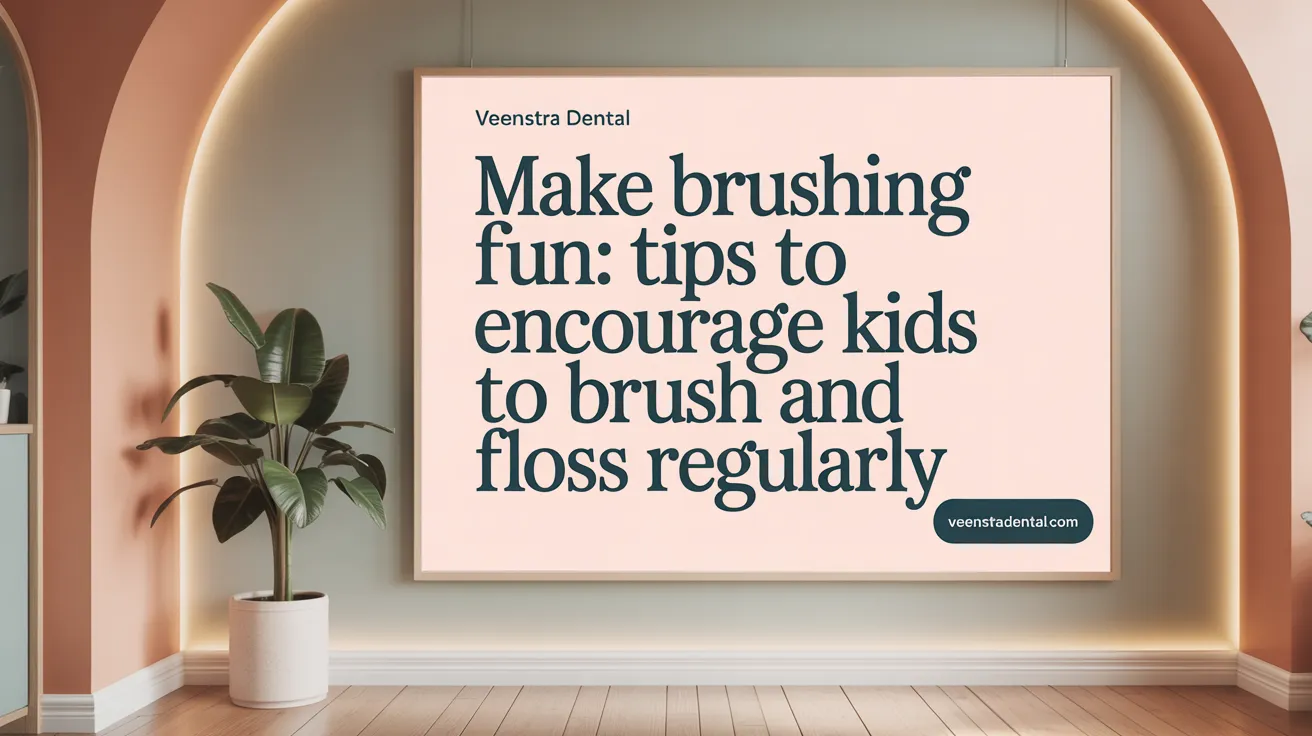Why Early Dental Care Matters
Establishing good dental habits early in a child's life is essential for fostering lifelong oral health. The journey begins even before the first tooth appears and involves a combination of daily care, healthy diet choices, regular dental visits, and parental involvement. Early attention to dental health ensures children develop healthy teeth and gums, prevents cavities, and supports overall wellbeing and confidence.
Starting Oral Hygiene From Infancy: The Foundation for Healthy Teeth

When should dental care start for children?
Dental care should begin around six months of age, coinciding with the appearance of the first teeth. However, oral hygiene should start earlier by gently cleaning a baby's gums with a moist, soft cloth after feedings. This practice helps infants get accustomed to mouth care and lays the groundwork for a smooth transition to tooth brushing. For more detailed guidance, see Early dental care for infants and Oral health tips for children.
Why are baby teeth important?
Primary teeth, or baby teeth, play several vital roles. They support speech development, assist chewing, shape the jaw, and create space for future adult teeth. Proper care of these teeth is essential; premature loss or neglect can cause misalignment and hinder natural jaw growth, potentially leading to complications with permanent teeth. Learn more at Importance of primary teeth and Healthy Mouth for Kids.
How should parents clean their child's mouth before and after teeth appear?
Before teeth emerge, parents should wipe the baby's gums gently twice a day using a soft, damp cloth. This maintains cleanliness and familiarizes the child with oral care. Once teeth begin to erupt, typically around six months to one year, a small soft-bristled toothbrush should be introduced. By about age two, fluoride toothpaste is recommended in a small smear, with parents supervising brushing to ensure effective and safe cleaning. For comprehensive tips, visit Cleaning baby's teeth and Teaching oral hygiene to infants.
Role of parental involvement
Parental involvement is crucial in establishing and maintaining good oral hygiene. Parents not only clean their child's gums and teeth early on but also demonstrate proper brushing techniques and supervise until the child is capable. By modeling positive habits and making brushing a fun, consistent routine, parents encourage lifelong dental health practices in their children. Explore strategies for involvement at Tips for healthy oral habits in children and How to encourage your child for good oral hygiene.
Brushing, Flossing, and Making Oral Care Enjoyable

What are the best practices for brushing children's teeth?
Children should brush their teeth twice a day for about two minutes each time. Using gentle, circular motions along the gum line helps remove plaque effectively without harming sensitive gums. For children under three years old, a smear of fluoride toothpaste is recommended, while those aged three and over should use a pea-sized amount. Because young children often lack the dexterity to brush well, parental supervision is advised until children reach around seven or eight years old to ensure proper technique and thorough cleaning. See more on Good oral hygiene habits and supervising children's brushing and Oral health tips for children including fluoride use.
When should flossing begin, and how can it be encouraged?
Flossing should begin as soon as two teeth touch, generally around the ages of two or three. Child-friendly floss picks or pre-threaded floss sticks can make the process easier and more appealing to children. Parents should assist with flossing until their child develops the coordination needed to floss independently, usually by about age ten. Making flossing a fun activity, by using colorful floss and adding rewards like stickers, can motivate children to embrace this habit. For guidance on starting flossing and making it enjoyable, visit Teaching oral care to kids and flossing education and Encouraging healthy oral habits in children.
How can parents help children develop a positive attitude toward dental habits?
Turning oral care into an enjoyable routine encourages children to cooperate and build lasting habits. Using character-themed toothbrushes, playing brushing songs, telling stories about dental health, or setting timers for brushing duration creates fun experiences. Positive reinforcement through praise and small rewards such as stickers can make brushing and flossing something children look forward to. Most importantly, parents leading by example—brushing and flossing alongside their children—helps foster a supportive environment and shows children the importance of good oral hygiene. Additional fun and motivational tips are detailed in 30 Fun Ways to Teach Kids About Oral Health and How to Encourage Your Child for Good Oral Hygiene.
Nutrition and Habits That Protect Young Teeth

How does diet influence children’s dental health?
Diet strongly affects children's dental health by either protecting or harming their teeth. Consuming excessive sugary snacks and drinks provides bacteria in the mouth with sugars, which they convert to acids that erode tooth enamel and cause cavities. In contrast, offering tooth-friendly foods like fresh fruits, crunchy vegetables, cheese, and water nourishes teeth and helps maintain a healthy oral environment. These healthier options encourage strong teeth and reduce the risk of decay. For more details, see Healthy Mouth for Kids and Maintaining Children's Oral Health.
What habits increase the risk of tooth decay in young children?
Certain habits raise the risk of cavities in children, especially prolonged use of bottles or sippy cups filled with milk, juice, or other sugary liquids. Allowing children to sleep while drinking such liquids can bathe their teeth in sugar overnight, vastly increasing decay risk. Similarly, on-demand nighttime breastfeeding beyond the eruption of primary teeth should be avoided. Establishing routines that exclude sugary liquids at bedtime is crucial for early dental health. For guidance, see Oral Health Tips for Children and importance of early dental care.
How should thumb sucking be managed?
Thumb sucking is a natural soothing behavior in infants, but if it persists beyond age 5, it may lead to misaligned teeth and jaw development issues. Parents are advised to gently discourage thumb sucking at this stage. Introducing alternative comforting methods can aid children in breaking this habit gradually, helping to prevent future orthodontic problems. Additional information can be found in Early dental care for infants and Pediatric Dentistry in Downey & Bell Gardens, CA.
By focusing on a balanced diet, limiting sugary and sticky foods, avoiding risky bottle usage habits, and managing thumb sucking, parents can significantly protect their children’s dental health from an early age. For comprehensive tips, visit Tips for Parents on Establishing Good Oral Hygiene Habits.
Regular Dental Visits: Building a Positive Dental Home

When should a child have their first dental check-up?
The first dental visit is ideally scheduled by the child's first birthday or within six months after their first tooth erupts. Early visits allow for timely assessment and help establish a dental home, promoting ongoing oral care. For more on early childhood dental visits, see recommendations from pediatric experts.
Why are regular dental visits important?
Routine check-ups every six months are essential for early detection of cavities and other dental issues before they worsen. These visits enable dentists to monitor the child's oral development and apply preventive treatments like fluoride varnish and dental sealants. Frequent contact with dental professionals breaks the cycle of dental anxiety by helping children become comfortable and familiar with the dental environment. Learn more about regular dental visits for kids and their benefits.
What role do pediatric dentists play in children's dental health?
Pediatric dentists have specialized training to care for infants through adolescents, focusing on children's unique dental needs and behaviors. They create a welcoming atmosphere with kid-friendly decor and gentle approaches, which reduce fear and encourage positive attitudes toward oral health care. Their expertise includes preventive care, early orthodontic assessments, and managing dental anxiety through tools like sedation if necessary. For further insights, explore pediatric dentist services and their importance.
What preventive treatments and early interventions are common?
Fluoride varnish is often applied during visits to strengthen enamel and reduce cavity formation by about one-third in primary teeth. Sealants are placed on molars to protect against decay, preventing up to 80% of cavities in those teeth. Early treatment of dental problems minimizes discomfort and future complications. See details about fluoride varnish and sealants and their effectiveness in preventing cavities.
How can positive dental experiences be created?
A combination of a child-friendly office, gentle care, and supportive communication fosters trust between dentists and young patients. Parents can prepare children by explaining what to expect and reinforcing good habits at home. Making the dental visit a fun and rewarding experience encourages children to continue regular care throughout life. Discover tips for encouraging your child's oral hygiene and creating positive dental experiences.
Establishing Lifelong Oral Health Benefits

What are the long-term benefits of establishing good oral habits early?
Healthy oral habits formed in childhood lead to lasting benefits including fewer cavities, reduced gum disease, and improved speech and nutrition. Importantly, good dental care in early years lowers the risk of serious systemic health problems later in life, such as heart disease and diabetes.
How can parents and communities support children's dental health education?
Parents play a vital role by modeling daily oral care routines and promoting healthy eating. Communities and schools enhance this by providing oral health education with interactive lessons and activities, which effectively build positive attitudes and knowledge about dental hygiene in children.
What tools and methods can make oral hygiene education effective for children?
Engaging tools like colorful toothbrushes, storytelling, games, and apps make brushing fun. Science experiments and videos help children understand the impact of diet and hygiene on teeth. Reward systems such as stickers and praise encourage consistent practice, reinforcing good habits early on.
By combining parental guidance, community education, and enjoyable learning methods, children are more likely to develop strong dental routines that support lifelong oral and overall health.
Building Healthy Smiles for Life
Starting dental care early and maintaining consistent oral hygiene practices, healthy dietary habits, and regular dental visits lay a strong foundation for lifelong oral health. Parents, caregivers, and dental professionals working together can foster positive experiences and good habits that protect children's smiles, promote overall health, and reduce future dental problems. Empowering children with knowledge and enjoyable routines prepares them to carry these essential habits forward into adulthood.
